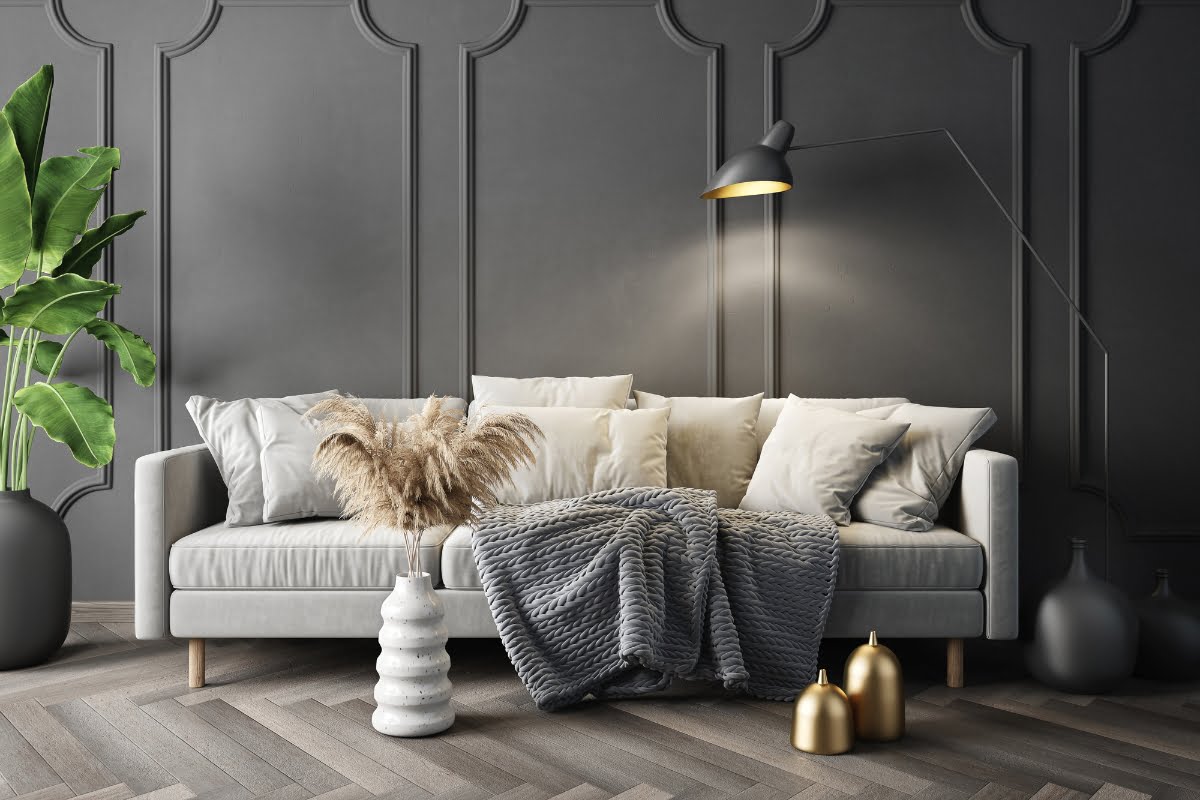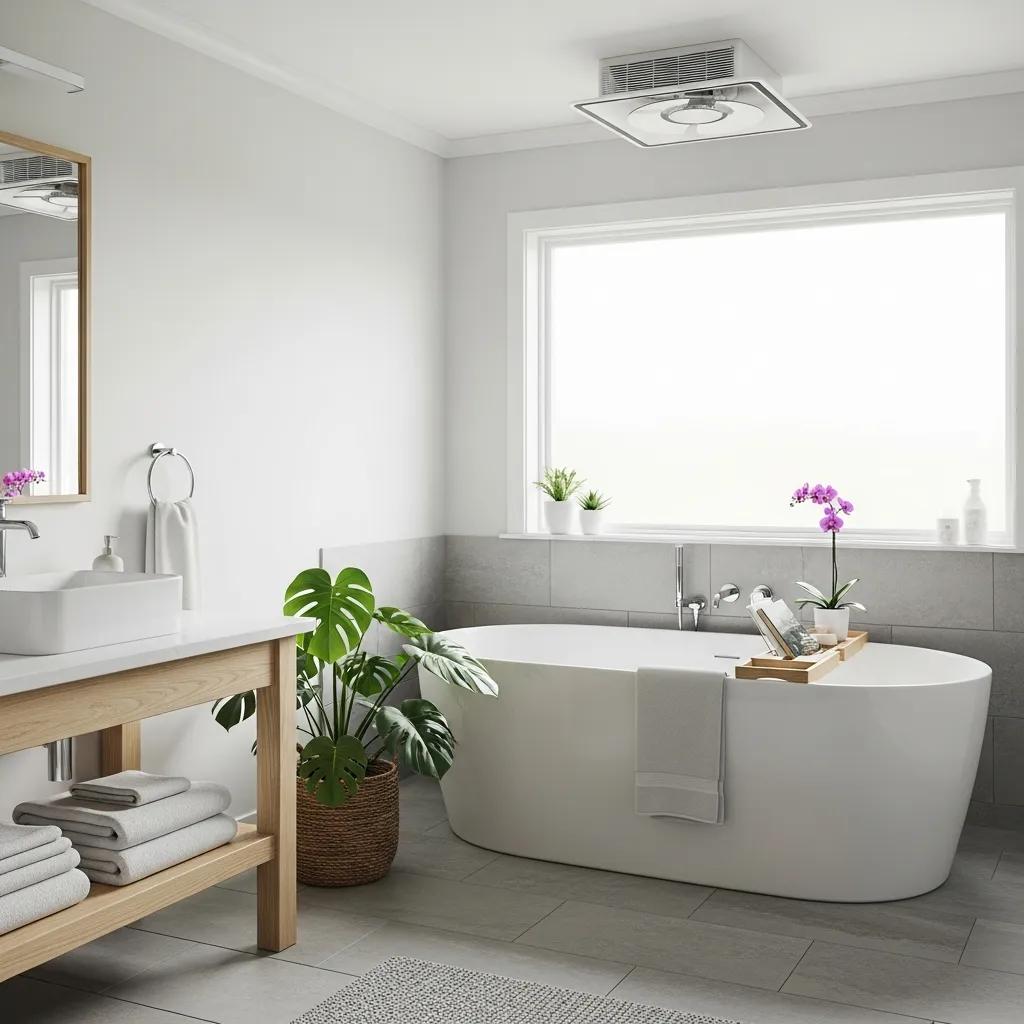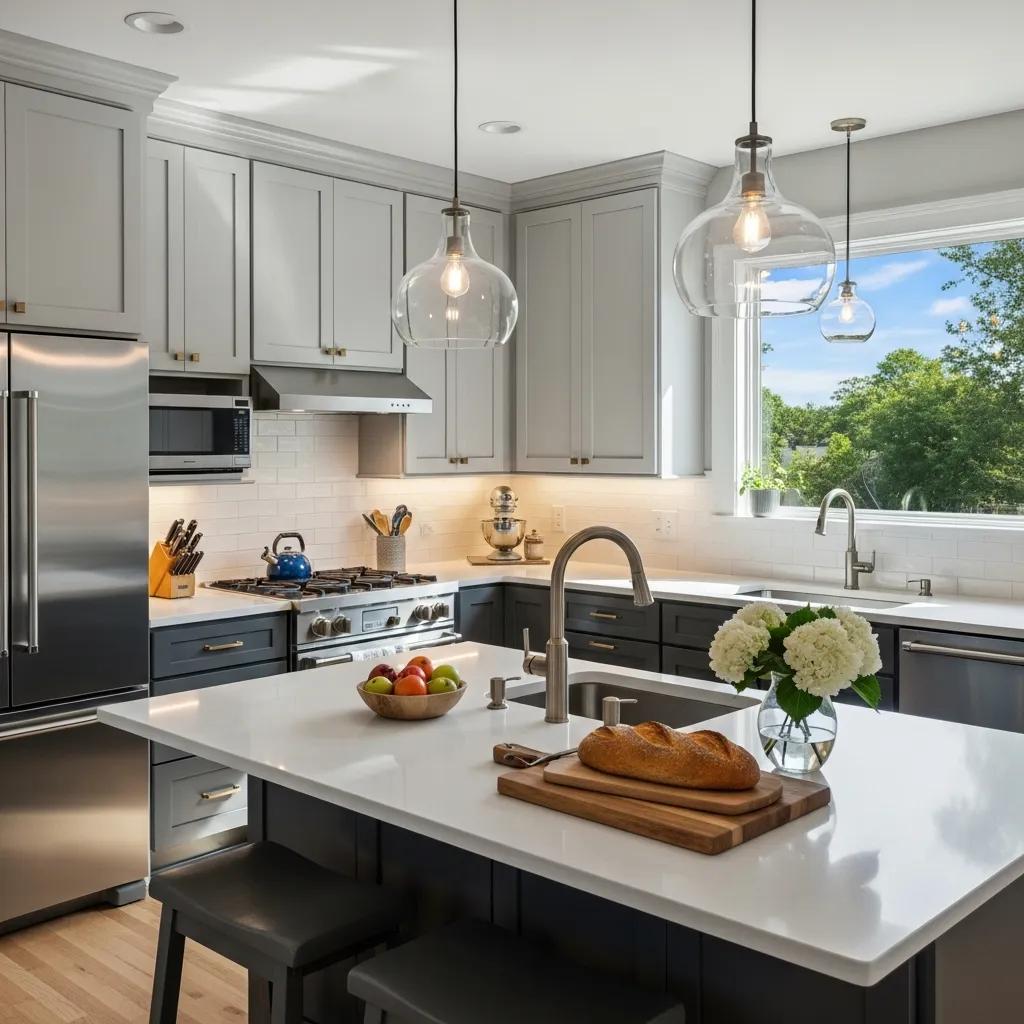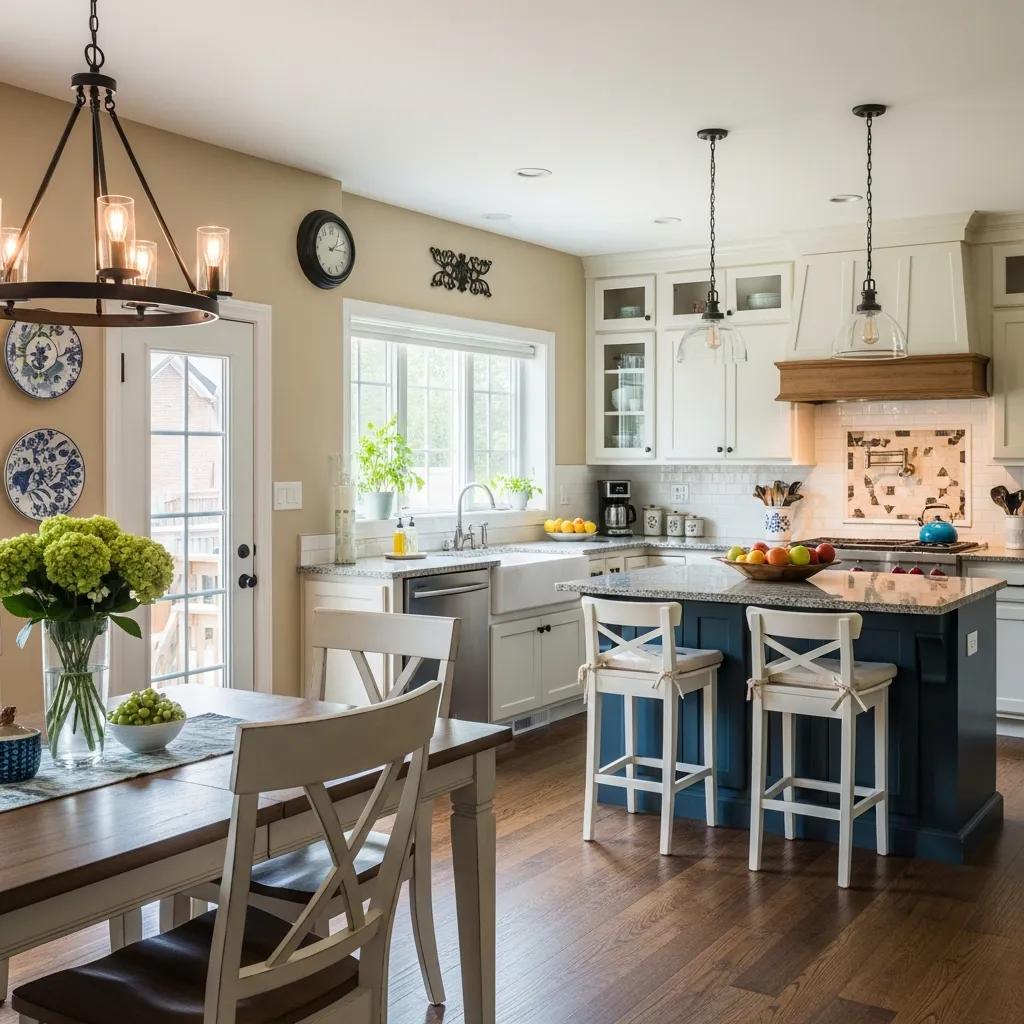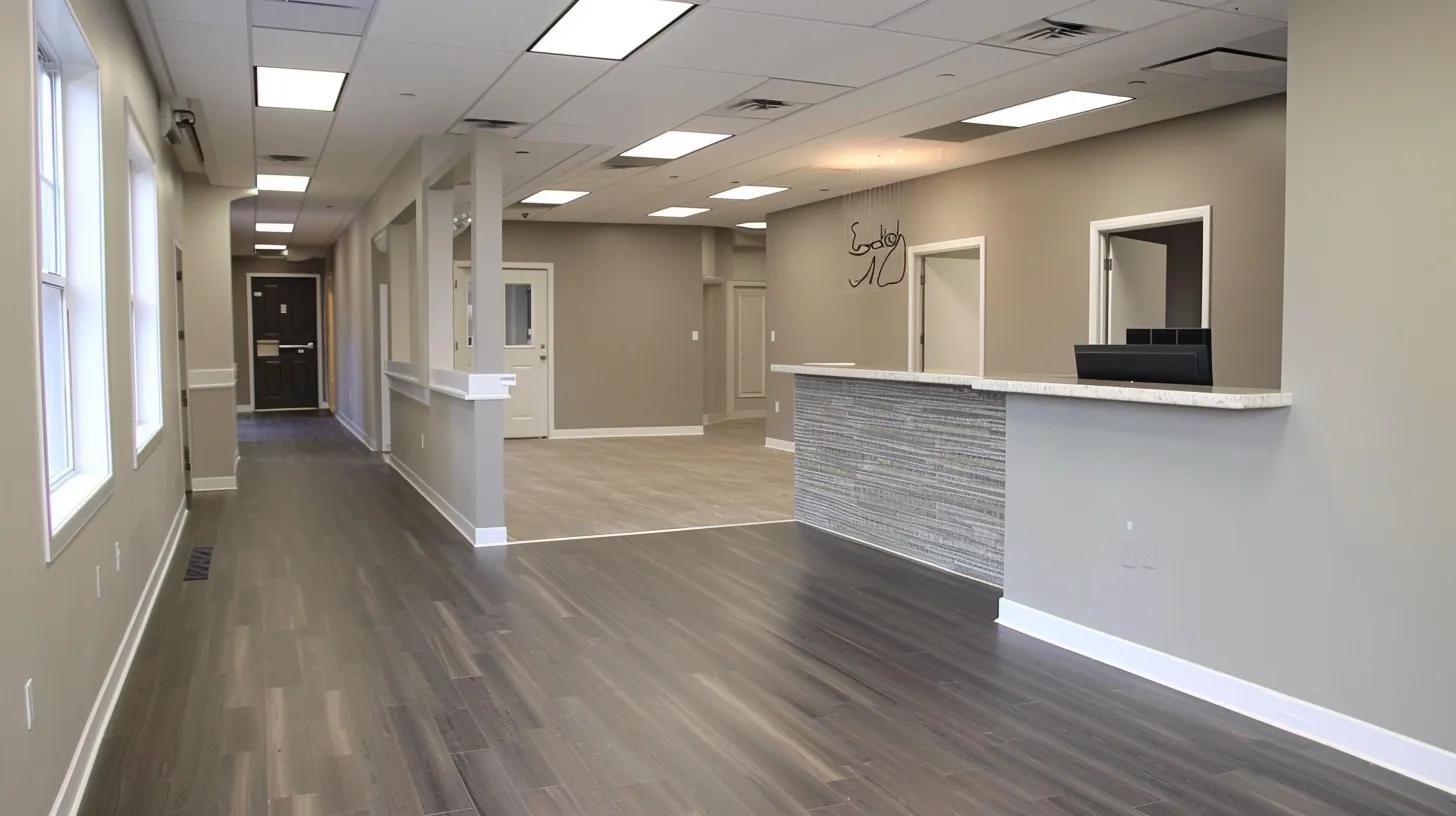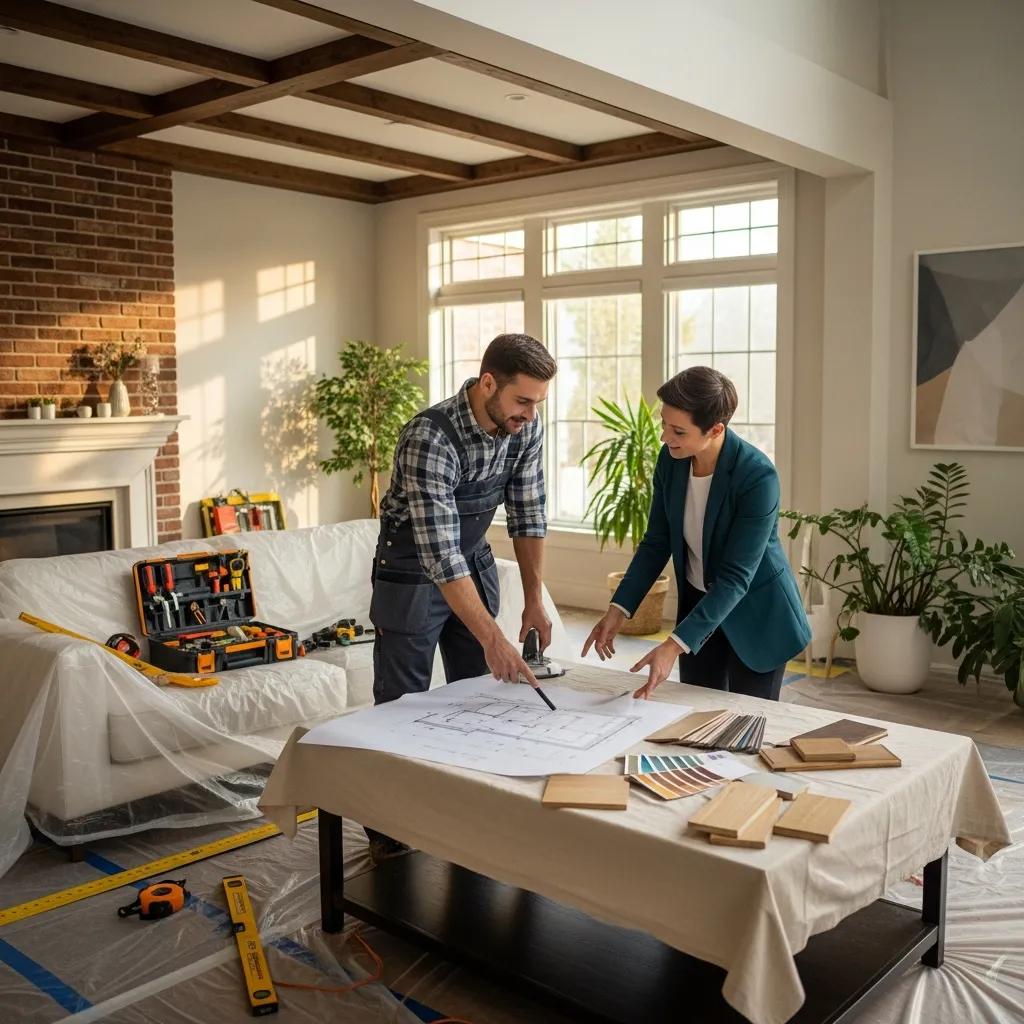Transforming a house into a home involves more than just selecting furniture and paint colors; it’s about infusing each space with personality, warmth, and style. Interior decorating is the art of curating a living environment that reflects your unique tastes and enhances your quality of life.
In this guide, we’ll explore the principles of interior decorating, offering inspiration and insights to help you elevate your home aesthetics with style. From selecting the perfect color palette and arranging furniture to incorporating decorative accents and creating focal points, this guide will empower you to transform your living spaces into havens of comfort and beauty.
Whether you’re embarking on a full-scale renovation or simply looking to refresh your décor, get ready to unleash your creativity and make your home a true reflection of your personality and lifestyle.
Express Your Style: Personalize Your Home with Creative Interior Decorating
The Fundamentals of Interior Decorating: Understanding Design Principles
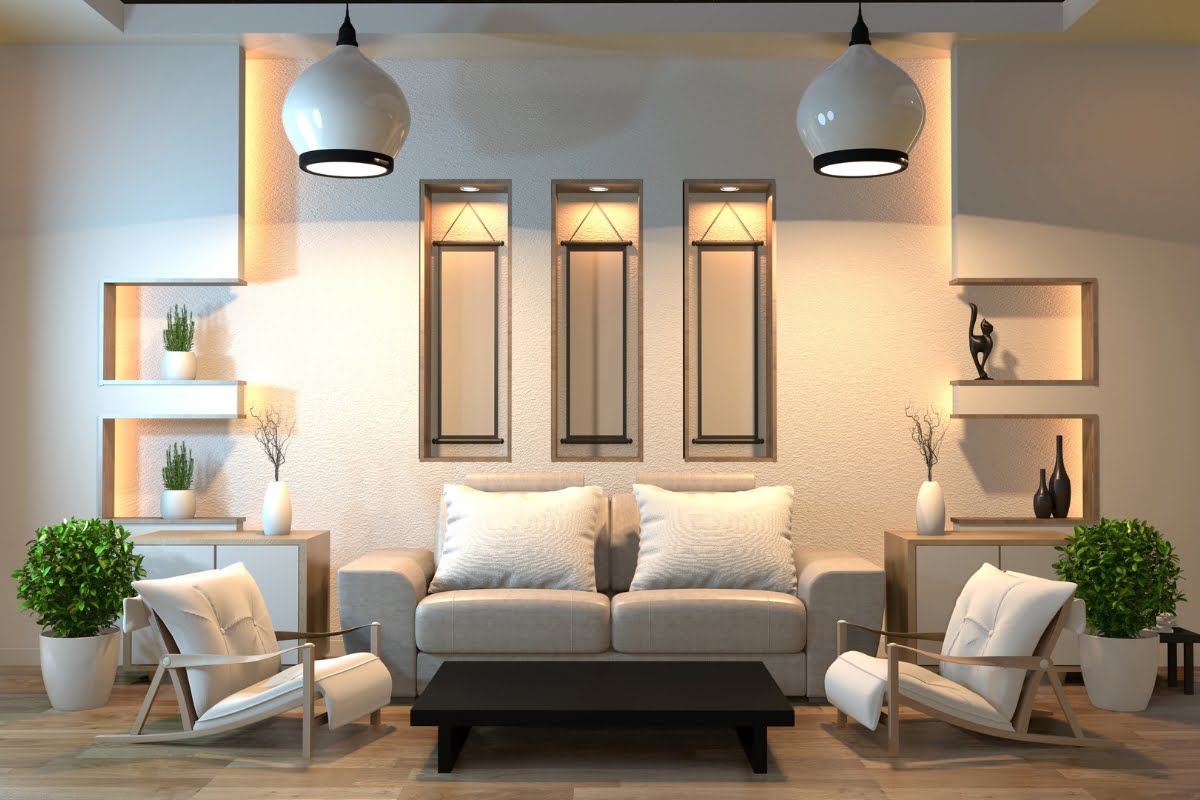
When it comes to interior decorating, understanding the fundamental design principles is crucial. These principles serve as a guide to creating a harmonious and visually appealing space.
Achieving balance is a fundamental principle in interior design. This equilibrium can be established by organizing furniture and decorations in either symmetrical or asymmetrical formations. Symmetrical arrangements evoke a feeling of structure and elegance, while asymmetrical placements introduce visual intrigue and a casual ambiance.
Another important principle is proportion. Proportion refers to the size and scale of objects in relation to each other and the room as a whole. It’s essential to choose furniture and decor that are appropriately sized for the space they will occupy. Oversized pieces can make a room feel cramped, while undersized items may appear insignificant.
In interior design, cohesion is established through the principle of unity. By integrating elements that harmonize in terms of style, color, or theme, a seamless look is achieved. Consistency can be attained by repeating patterns or colors throughout the room.
Lastly, emphasis is a design principle that draws attention to certain areas or objects within a room. This can be done through focal points such as an eye-catching piece of artwork or an architectural feature like a fireplace. Emphasis adds visual interest and helps create a sense of hierarchy within the space.
Creating a Cohesive Color Palette: Harmonizing Your Home’s Aesthetics
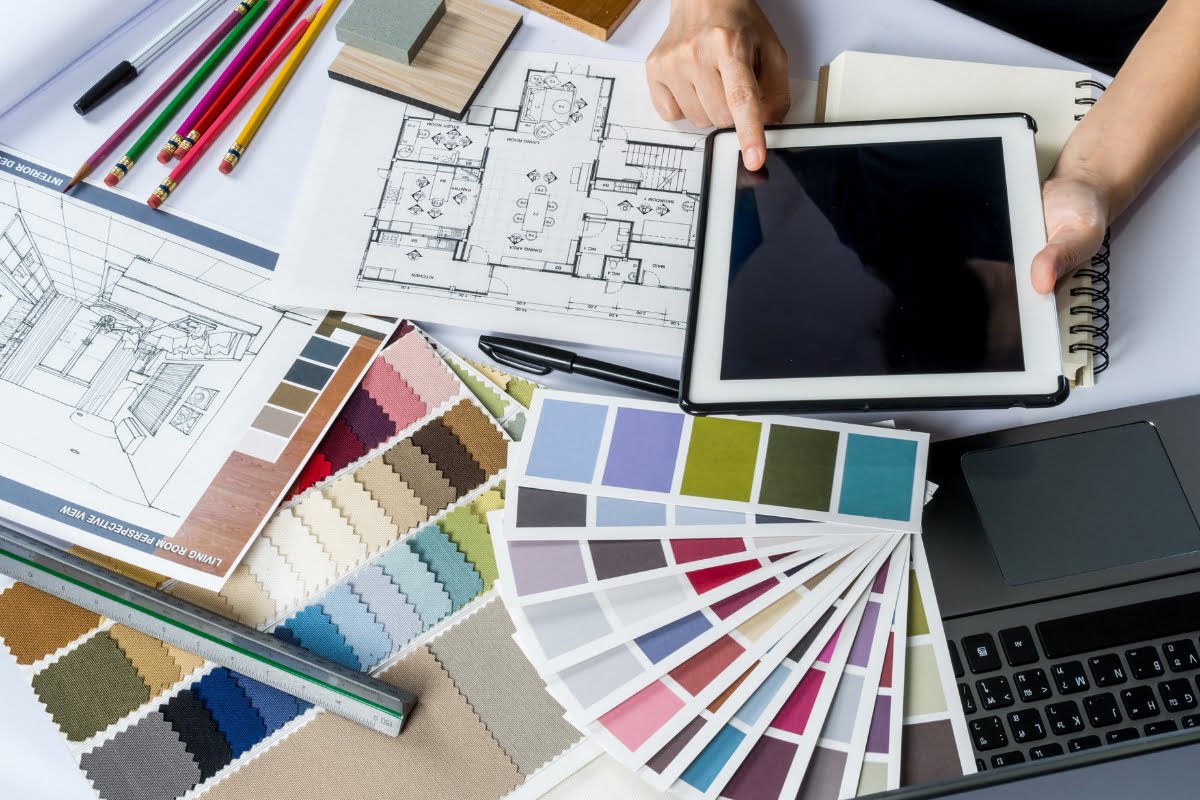
Color plays a vital role in interior decorating as it sets the mood and atmosphere of a room. To create a cohesive color palette, start by selecting one or two main colors that will serve as the foundation for your design scheme. Consider factors such as personal preference, natural lighting, and the overall vibe you want to achieve.
Once you have chosen your main colors, you can then select complementary or contrasting shades to add depth and interest. A good rule of thumb is to use the 60-30-10 rule, where 60% of the room is dominated by the main color, 30% by a secondary color, and 10% by an accent color.
Remember that colors can evoke different emotions and have psychological effects. For example, cool tones like blues and greens create a calming and serene atmosphere, while warm tones like reds and yellows bring energy and vibrancy to a space. Consider the function of each room when selecting colors; for instance, soothing hues are ideal for bedrooms, while bold shades can be used in areas meant for socializing.
Furniture Selection: Balancing Style and Functionality
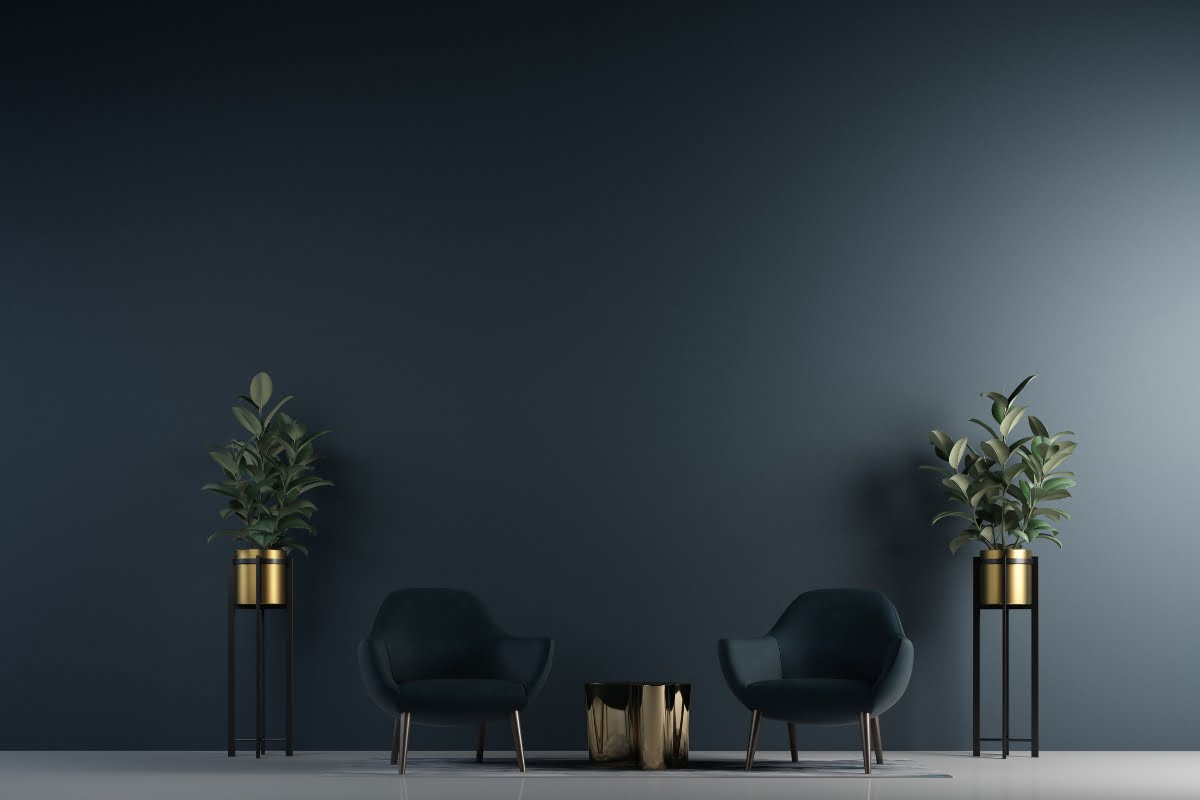
Choosing the right furniture is essential in interior decorating as it not only adds style but also serves a functional purpose. Start by assessing your needs for each room—consider factors such as seating capacity, storage requirements, and traffic flow.
When selecting furniture pieces, pay attention to their style and how they fit into your overall design scheme. Opt for pieces that reflect your personal taste while also complementing each other in terms of style and scale. Mixing different styles can create an eclectic look if done intentionally.
Additionally, consider the materials used in furniture construction. Quality materials not only ensure durability but also add a touch of luxury to your space. Don’t forget about comfort as well—after all, you want your furniture to be both visually appealing and cozy.
Lighting Matters: Setting the Right Ambiance for Every Room
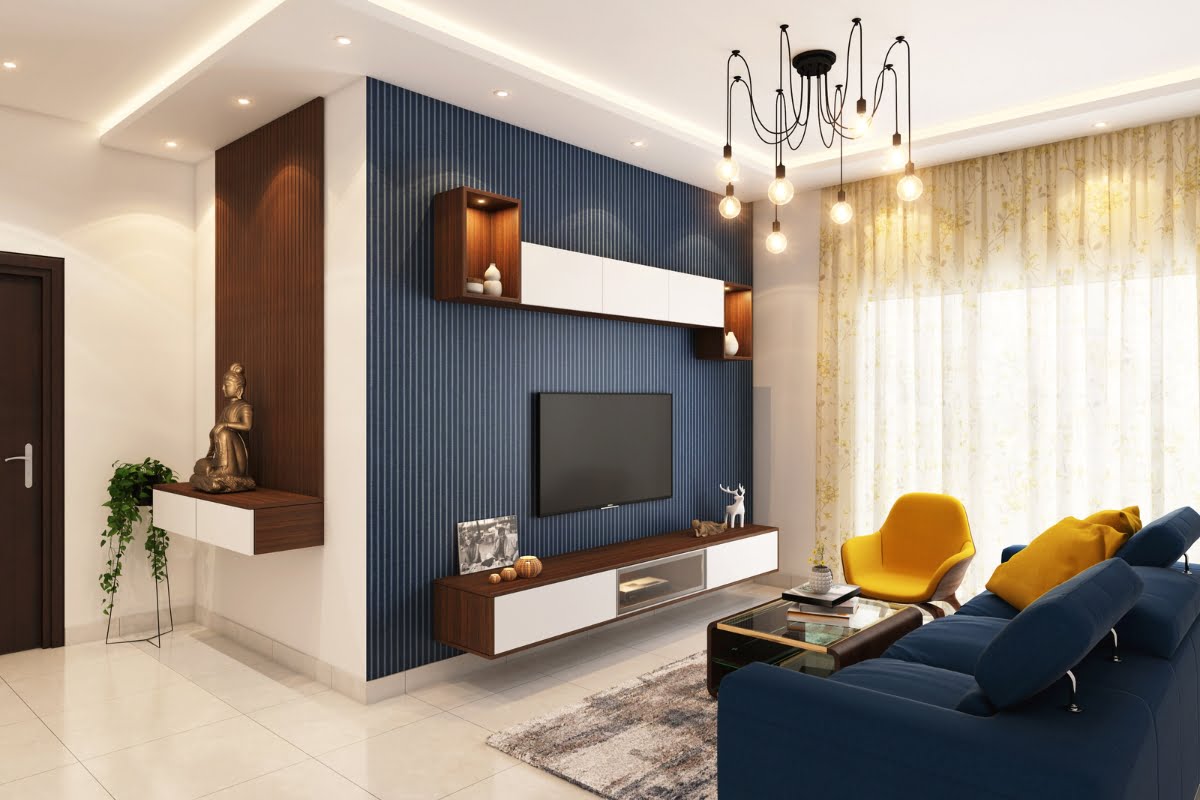
When it comes to interior decorating, one crucial aspect that often gets overlooked is lighting. Lighting plays a significant role in setting the right ambiance for every room in your home. Whether you prefer a cozy and inviting atmosphere or a bright and energizing space, the type of lighting you choose can make a world of difference.
In the living room, where you entertain guests or unwind after a long day, a combination of ambient lighting, task lighting, and accent lighting can create a warm and welcoming environment. Consider installing a statement chandelier as a focal point and adding floor lamps or table lamps for additional brightness where needed.
For the bedroom, a more soothing and relaxing ambiance is desired. Soft, warm lighting from bedside lamps or wall sconces can help set the mood for rest and relaxation. Dimmer switches are also a great addition to adjust the brightness levels according to your preference.
In the kitchen, where functionality is key, bright task lighting is essential for performing cooking tasks efficiently. Under cabinet lighting, recessed lighting, or pendant lights over the kitchen island can illuminate the workspace and enhance both the aesthetics and functionality of the room.
When it comes to the bathroom, proper lighting is crucial for grooming activities. Bright, white light is ideal for applying makeup or shaving, while softer lighting around the vanity area can add a touch of elegance and sophistication to the space.
In home offices or study areas, task lighting is essential to maintain focus and productivity. A desk lamp with adjustable brightness levels or overhead lighting that reduces glare on computer screens can make a significant difference in creating a conducive work environment.
Personalizing Spaces: Infusing Your Home with Character
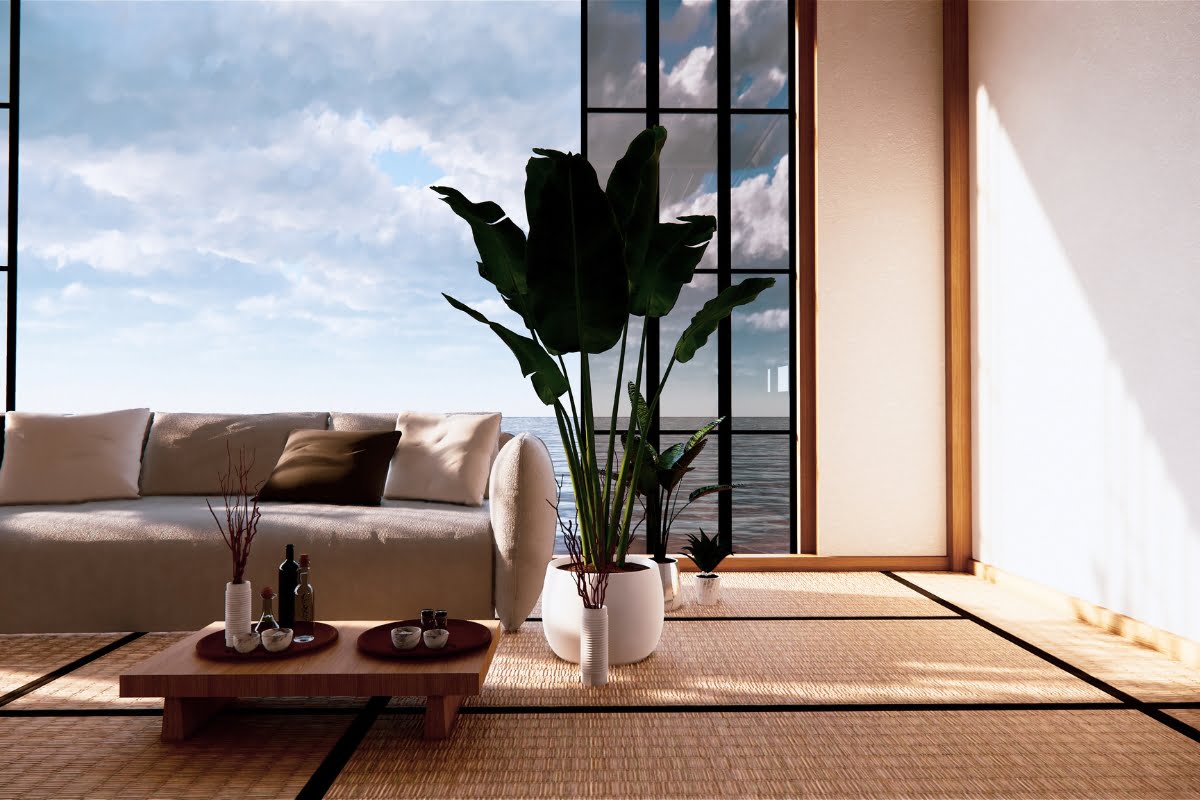
Your home should be a reflection of your personality and interests. Personalizing your space is an essential part of interior decorating as it adds character and makes it truly feel like home.
One way to infuse your personality into your decor is through artwork and accessories. Choose pieces that resonate with you—whether it’s a painting by your favorite artist or a collection of travel souvenirs. Display them strategically throughout your home to create focal points and spark conversations.
Another way to personalize your space is through textiles such as curtains, rugs, and throw pillows. Play with different patterns, textures, and colors that speak to you. Mix and match them to create visual interest while maintaining a cohesive look.
Textures and Patterns: Adding Depth and Interest to Your Decor
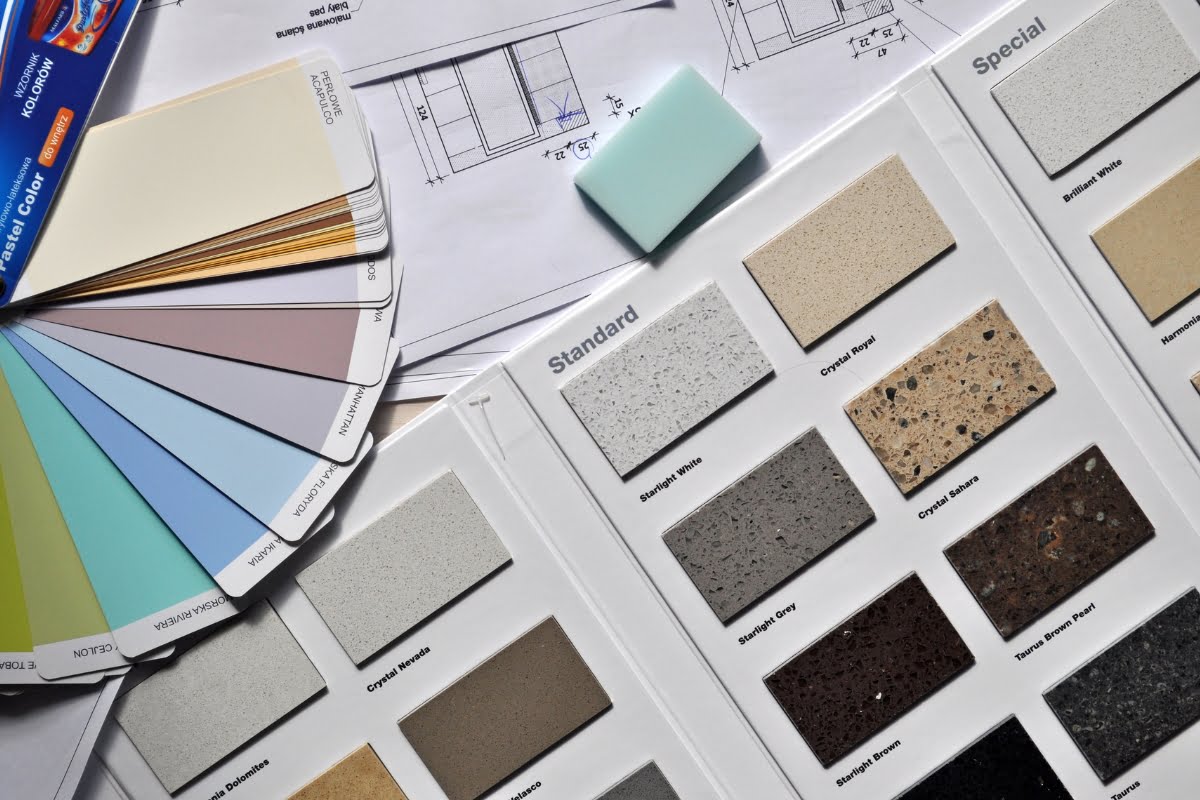
Textures and patterns play a vital role in interior decorating, elevating your home aesthetics with style. By incorporating various textures and patterns into your decor, you can add depth and interest to your living space, creating a dynamic and visually appealing atmosphere.
When it comes to interior decorating, the use of textures can significantly impact the look and feel of a room. Soft and plush textures like velvet or faux fur can add a sense of luxury and coziness to your space, perfect for creating a warm and inviting ambiance in your living room or bedroom.
In contrast, incorporating sleek and shiny textures such as glass or metal can bring a modern and sophisticated touch to your decor. These textures are ideal for spaces where you want to create a more contemporary and polished look, like in a chic home office or a stylish kitchen.
Patterns are another essential element in interior decorating that can help add interest and personality to your home. Whether you prefer bold and vibrant patterns or subtle and understated ones, incorporating patterns into your decor can make a significant impact on the overall design of a room.
From geometric prints to floral motifs, there are endless options to choose from when it comes to patterns. Mixing and matching different patterns can create a visually stimulating effect, adding a sense of dynamism and character to your home decor.
When combining textures and patterns in your interior decorating, it’s essential to strike a balance to prevent the space from feeling overwhelming or cluttered. Consider mixing different textures like smooth leather with rough jute or pairing bold patterns with solid colors to create a harmonious and cohesive look.
By carefully selecting and incorporating textures and patterns into your decor, you can transform your living space into a stylish and inviting sanctuary that reflects your unique personality and tastes. Interior decorating is all about creativity and self-expression, so don’t be afraid to experiment with different textures and patterns to create a home that truly speaks to you.
Maximizing Space: Small Tips for Big Impact
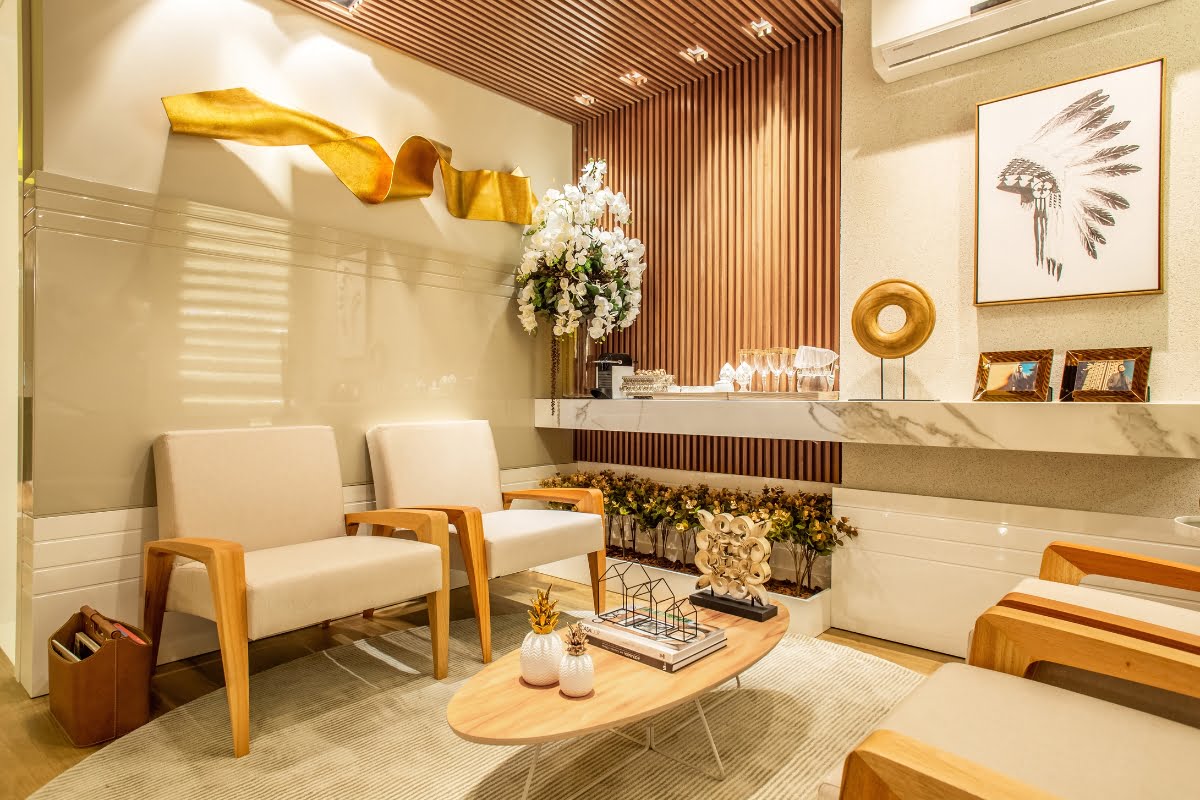
When it comes to interior decorating, making the most of limited space can have a significant impact on your home aesthetics. Small spaces can be challenging to decorate, but with the right tips and tricks, you can create a stylish and functional living environment. Here are some expert suggestions to help you maximize space in your home:
- Multi-Functional Furniture: Opt for furniture pieces that serve dual purposes, such as a storage ottoman or a sofa bed. These items not only provide comfort but also offer extra storage or sleeping options, maximizing space efficiency.
- Vertical Storage Solutions: Make use of vertical space by installing shelves or wall-mounted cabinets. Vertical storage not only saves floor space but also adds visual interest to your walls, making the room feel more spacious.
- Light Colors and Mirrors: Light-colored walls and furniture can make a room feel larger and brighter. Additionally, strategically placing mirrors can create the illusion of depth and reflect light, further enhancing the sense of space.
- Declutter Regularly: Keep clutter at bay by regularly decluttering and organizing your belongings. Invest in storage baskets, bins, or decorative boxes to keep items out of sight and maintain a tidy environment.
- Strategic Lighting: Proper lighting can open up a space and make it feel more inviting. Combine overhead lighting with task lighting and accent lighting to illuminate different areas of the room effectively.
- Scale and Proportion: Choose furniture and decor items that are proportionate to the size of the room. Avoid overcrowding the space with oversized pieces that can make the room feel cramped.
- Utilize Nooks and Crannies: Get creative with small nooks and corners by adding customized storage solutions or creating cozy reading or work areas. Every inch of space counts when maximizing a room’s potential.
Bringing the Outdoors In: Incorporating Nature into Your Design
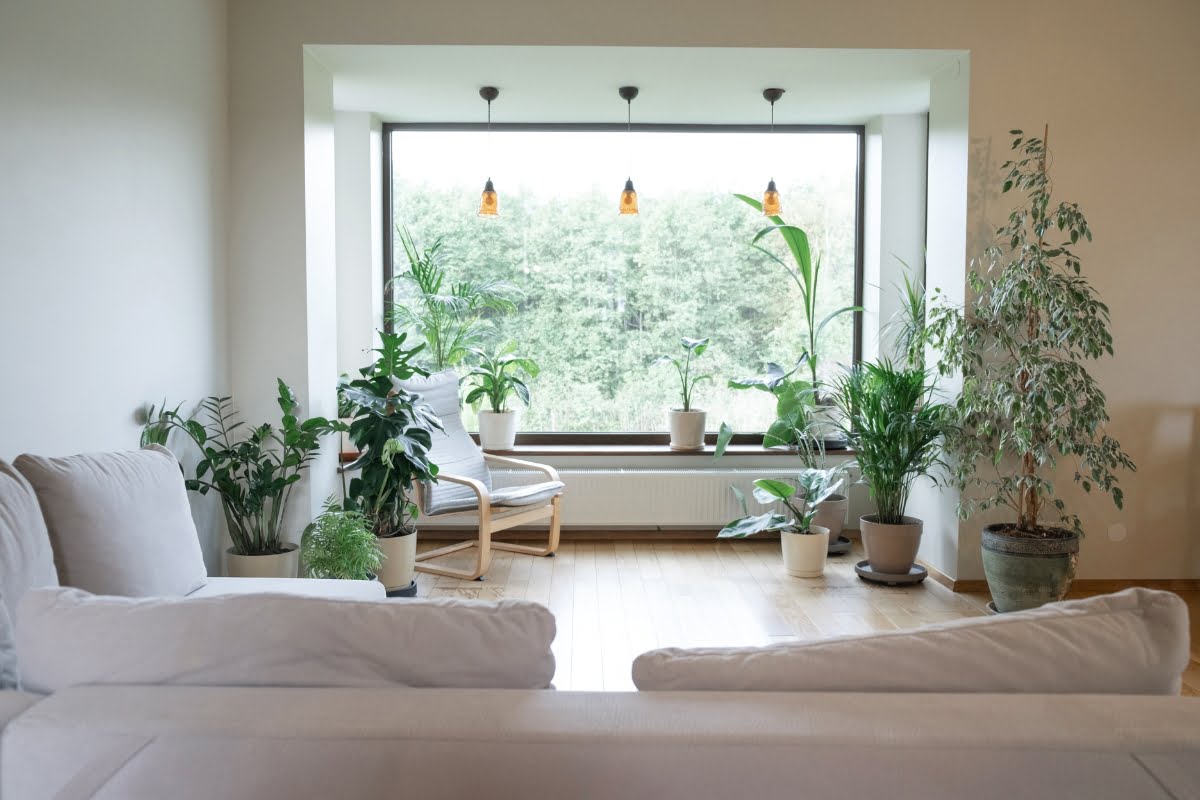
When it comes to interior decorating, one of the most timeless and refreshing concepts is bringing the outdoors in. Incorporating elements of nature into your design not only adds a touch of freshness but also creates a harmonious and serene ambiance within your living space.
In the realm of interior decorating, the idea of incorporating nature into your design can be achieved through various elements. One of the simplest ways to do this is by incorporating natural materials such as wood, stone, or bamboo into your furniture and decor pieces. These materials not only add warmth and texture to your space but also create a seamless connection with the outdoors.
Another way to bring the outdoors in is by incorporating greenery and plants into your interior design. Adding houseplants not only improves air quality but also adds a pop of color and life to your space. You can opt for a variety of plants, from small succulents to large leafy plants, depending on your preference and the amount of natural light available in your home.
Natural light plays a crucial role in interior decorating. Maximizing natural light not only brightens up your space but also creates a connection with the outdoors. Opt for sheer curtains or blinds that allow sunlight to filter through while maintaining privacy.
Incorporating nature-inspired color palettes can also elevate your interior decorating game. Earthy tones like greens, browns, and blues can create a calming and soothing atmosphere, mimicking the colors found in nature. Consider incorporating these hues into your walls, furniture, or decor accessories for a cohesive and nature-inspired look.
Lastly, don’t forget about incorporating natural textures into your design. Soft fabrics like cotton, linen, or wool can add a tactile element to your space, while natural textures like rattan, jute, or sisal can introduce a sense of depth and visual interest.
Art and Accessories: Elevating Your Home with Finishing Touches
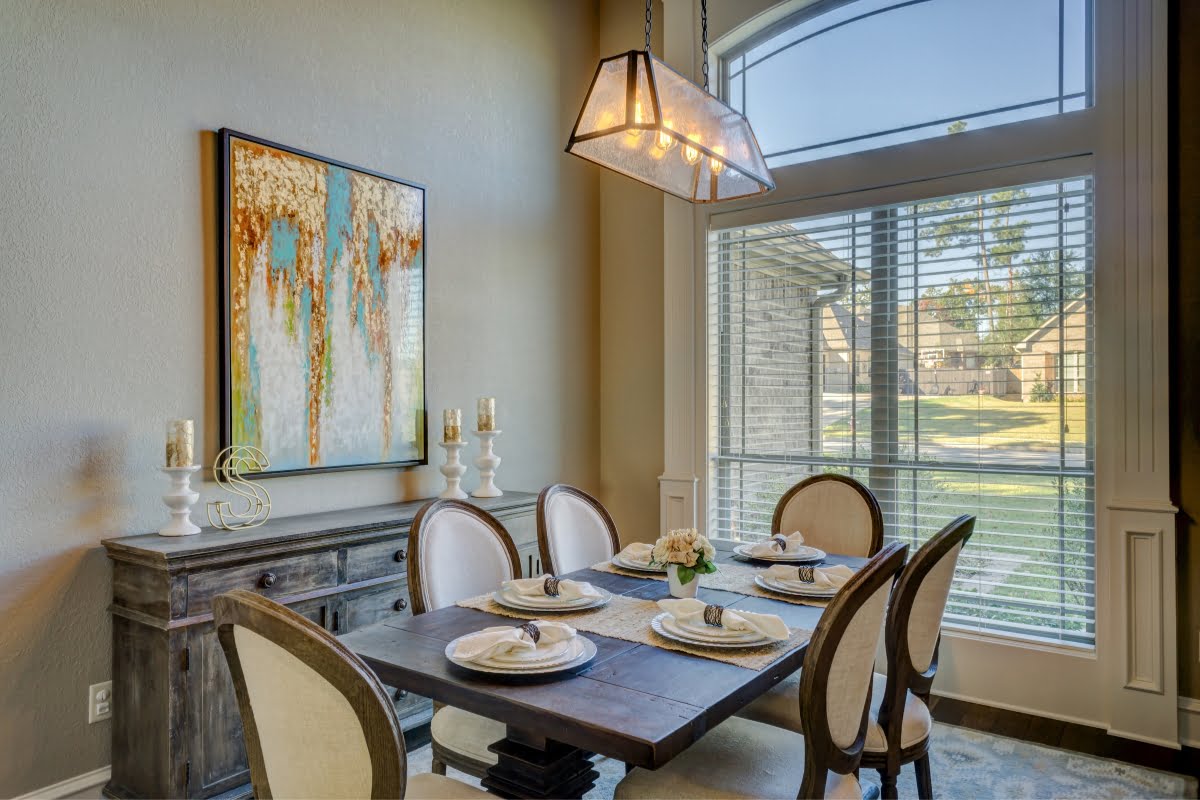
When it comes to interior decorating, the devil is in the details. Adding art and accessories to your living space can truly elevate the overall aesthetics and ambiance of your home. These finishing touches play a crucial role in bringing your design vision to life and creating a space that reflects your personality and style.
Incorporating art into your home décor can instantly add character and sophistication. Whether you opt for bold, statement pieces or subtle, minimalist artworks, art has the power to tie together different elements in a room and create a cohesive look. From paintings and photographs to sculptures and tapestries, the options are endless when it comes to choosing the perfect pieces for your space.
Accessories, on the other hand, are the cherry on top of your interior decorating efforts. They allow you to infuse your personal touch and bring warmth and personality to your home. Decorative items such as vases, cushions, rugs, and candles can add texture, color, and visual interest to any room. Mixing and matching different accessories can help you achieve a curated and stylish look that is unique to you.
When selecting art and accessories for your home, consider the existing color palette, furniture, and overall theme of the space. Opt for pieces that complement the style of your home while also making a statement. Remember, it’s all about balance and harmony – a well-placed piece of art or a carefully chosen accessory can make all the difference in transforming a room from ordinary to extraordinary.
Conclusion: Your Home, Your Style – Embracing the Beauty of Interior Decorating
Interior decorating is an art form that allows you to transform your home into a beautiful and personalized sanctuary. Remember that interior decorating is not about following trends but about creating a space that reflects your unique personality and brings you joy every time you walk through the door. So go ahead—embrace the beauty of interior decorating and make your home truly yours.
As you embark on the journey of enhancing your home’s interior aesthetics, partnering with a reliable remodeling company is essential. At FD Remodeling Company, we specialize in transforming spaces with style and elegance. Kickstart your project today by filling out our website form or give us a call at 404-857-5582 to schedule a consultation. Let us bring your vision to life and elevate your home aesthetics with our expertise and craftsmanship.

